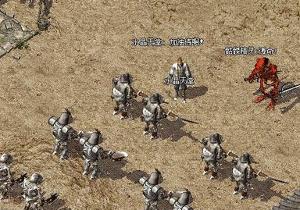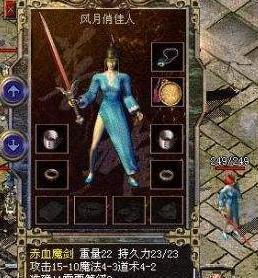今日新开传奇网站发布_3000ok传奇sf最新发布站
七八九开区网
- admin 2024年10月13日0
sfchuanqi: Exploring the Mystique of an Enigmatic Chinese Game
Introduction to sfchuanqi
Sfchuanqi is an intriguing term that brings to mind a blend of culture, strategy, and gaming, primarily rooted in the rich heritage of Chinese entertainment. This article delves deep into the phenomenon of sfchuanqi, discussing its origins, gameplay mechanics, cultural significance, and the modern adaptations that have emerged in recent years. Whether you are a seasoned player or a curious newcomer, this comprehensive guide aims to provide you with a well-rounded understanding of sfchuanqi.
Origins and Cultural Significance of sfchuanqi
The term "sfchuanqi" derives from traditional Chinese board games, which have been a staple of Chinese culture for centuries. These games not only serve as entertainment but also play a crucial role in social bonding and cognitive development. Sfchuanqi chronicles a rich tapestry of strategic gameplay combined with folklore and storytelling elements. The game embodies the values of patience, foresight, and strategic planning, which are deeply embedded in Chinese philosophy.


To truly appreciate sfchuanqi, one must acknowledge the importance of Chinese history in shaping its narrative. The game is often intertwined with historical events and figures, making each session an exploration of Chinese history as players maneuver their pieces on the board. This blend of gaming with storytelling has made sfchuanqi not just a pastime but a way to pass down cultural legacies through generations.
Gameplay Mechanics of sfchuanqi
Sfchuanqi is traditionally played on a rectangular board, divided into a grid-like pattern, accommodating multiple players. The game pieces, often adorned with intricate designs representing various characters from Chinese mythology, symbolize different abilities and strategic advantages. Players take turns moving their pieces across the board, following specific rules that dictate their movements, objectives, and interactions with other players.
The core gameplay mechanics involve strategy and foresight. Players must anticipate their opponents moves while planning their own strategies. The objective usually involves capturing opponent pieces, achieving specific configurations, or reaching designated areas on the board. What makes sfchuanqi unique is its layered complexity; players must adapt their tactics based on their opponents actions, making each session unpredictable and engaging.
Additionally, the game incorporates a variety of tactics and strategies, appealing not just to children but also to adults who enjoy intellectual challenges. Players must decide when to take risks, when to defend their positions, and how to form alliances with others, much like a real-life diplomatic scenario. This social dynamic adds depth to the game, making it a bonding experience for families and friends.
Modern Adaptations of sfchuanqi
In recent years, sfchuanqi has undergone significant transformations, adapting to the digital age while retaining its cultural roots. Mobile applications and online platforms have made the game more accessible to a broader audience. These modern adaptations often feature enhanced graphics, sound effects, and user interfaces that cater to today’s tech-savvy gamers.
Furthermore, online versions of sfchuanqi allow players to connect with others around the world, fostering a host of international collaborations and competitions. This digital transition has revitalized interest in the game, introducing new players to its complex strategizing while maintaining a respect for its traditional aspects. Many players enjoy the convenience of playing sfchuanqi on their smartphones or computers, making it easier to engage with friends and family no matter the geographical distance.
Moreover, the integration of sfchuanqi into esports and competitive gaming environments has added a new layer of excitement. Professional tournaments are emerging that spotlight skilled players, transforming what was once a casual pastime into a competitive arena. This shift not only brings recognition to sfchuanqi but also showcases the potential for traditional games in the modern gaming landscape.
Community and Cultural Events Surrounding sfchuanqi
The community surrounding sfchuanqi is vibrant and robust, with numerous events celebrating the games cultural significance. Many towns and cities in China host annual sfchuanqi tournaments, where enthusiasts gather to compete and showcase their skills. These gatherings often involve a festive atmosphere, complete with traditional food, music, and cultural performances.
Additionally, social media platforms play a crucial role in connecting players, enthusiasts, and cultural historians interested in the game. Online communities frequently share strategies, host discussions about the games historical context, and even collaborate on creating new adaptations. This communal engagement fosters a sense of belonging and strengthens the appreciation for sfchuanqi as an integral aspect of Chinese heritage.
Educational institutions are also taking notice, integrating sfchuanqi into curriculums that promote critical thinking, strategic planning, and cultural education. Teachers often use the game as a tool to engage students, encouraging teamwork and strategic dialogue. The intertwining of gameplay with learning is a testament to sfchuanqis adaptability and its capacity to inspire across different platforms and age groups.
Conclusion: The Enduring Appeal of sfchuanqi
Sfchuanqi stands as a beacon of Chinese cultural heritage, embodying the essence of strategy, community, and history. Its evolution from a traditional board game to a modern digital phenomenon demonstrates not only its versatility but also its timeless appeal. Whether played casually at home or in competitive tournaments, sfchuanqi continues to captivate players with its blend of intellect, culture, and camaraderie.
As sfchuanqi continues to thrive, it invites new generations to engage with its rich history while forming their own experiences and memories. In the ever-evolving landscape of gaming, sfchuanqi remains a testament to the power of traditional games in fostering connections, encouraging strategic thinking, and preserving cultural narratives. Embrace sfchuanqi today, and join the ranks of players who have found joy and significance in this extraordinary game.
文章内容页下在线分享
sfchuanqi: Exploring the Mystique of an Enigmatic Chinese Game
Powered By 2020-2025 Theme By 网站地图
评论列表: